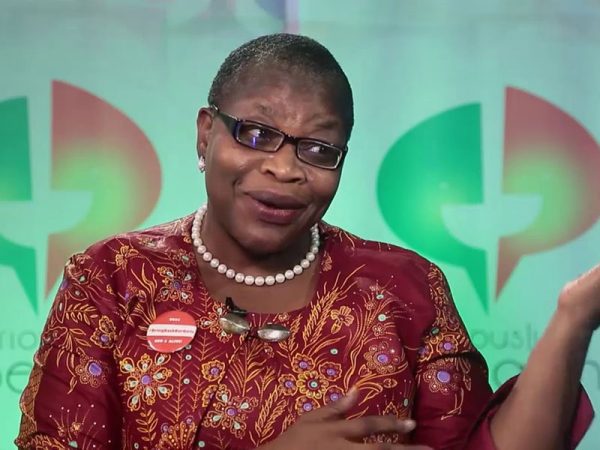The clash between former Minister of Education, Oby Ezekwesili, and Senator Onyekachi Nwaebonyi during a Senate Committee hearing has ignited a national conversation about the treatment of women in Nigerian society. Ezekwesili, a prominent voice on issues of good governance and accountability, attended the hearing in support of Senator Natasha Akpoti-Uduaghan, who had filed a petition against Senate President Godswill Akpabio. The hearing, focused on Akpoti-Uduaghan’s allegations, quickly devolved into a heated exchange between Ezekwesili and Nwaebonyi, exposing the underlying tensions surrounding gender and power dynamics in Nigerian politics. Ezekwesili has since defended her actions, arguing that the incident highlights the challenges women face when challenging established authority figures, particularly within patriarchal structures.
The incident unfolded during a hearing of the Senate Committee on Ethics, Privileges, and Public Petitions, convened to address Akpoti-Uduaghan’s petition against Akpabio. Accompanied by her legal counsel and a key petitioner, Akpoti-Uduaghan raised concerns about the impartiality of the committee chair, Neda Imasuen, due to his perceived handling of previous allegations of sexual harassment against Akpabio. Further allegations of pre-existing relationships between committee members and Akpabio fueled concerns about potential bias, prompting calls for Imasuen’s recusal. This request was met with resistance from some lawmakers, who interpreted it as an attack on the committee’s credibility. Ezekwesili’s vocal support for Akpoti-Uduaghan and her insistence on being recognized as a witness further escalated the tension, drawing the ire of certain committee members, including Senator Nwaebonyi.
Ezekwesili’s request to be sworn in as a witness, asserting her right as a Nigerian citizen to participate in the proceedings, triggered a particularly aggressive response from Senator Nwaebonyi. His verbal assault, which included derogatory remarks about her character and status as a woman, quickly escalated the situation into a public confrontation. Nwaebonyi’s dismissive language and personal attacks, captured on camera and widely circulated on social media, sparked widespread outrage and condemnation. Many viewed his behavior as emblematic of a broader societal issue, where women’s voices are often marginalized and their contributions dismissed, particularly in male-dominated spaces like the Nigerian political arena.
The subsequent public reaction to the incident has largely centered on the implications of Nwaebonyi’s behavior for women’s participation in public life. Ezekwesili, in subsequent interviews, framed the confrontation as a stark illustration of the challenges women face when challenging powerful figures. She argued that Nwaebonyi’s outburst was not an isolated incident but rather a reflection of deeply ingrained patriarchal attitudes that seek to silence and intimidate women who dare to speak out. Her stance resonated with many who see her experience as representative of the broader struggles faced by women navigating Nigerian society’s power structures. The incident has reignited calls for greater gender sensitivity and respect within the political sphere, as well as broader societal reforms to address underlying gender inequalities.
This incident, while specific to a Senate committee hearing, has broader implications for Nigerian democracy and the representation of women within it. The dismissive and disrespectful treatment experienced by Ezekwesili underscores the need for a more inclusive and equitable political environment. The incident highlights the importance of fostering a culture of respect and open dialogue where all voices, regardless of gender, can be heard without fear of intimidation or harassment. It also raises questions about the mechanisms in place to address such behavior and hold individuals accountable for their actions, particularly within institutions like the Senate.
Moving forward, this incident serves as a crucial learning moment for the Nigerian political system. It necessitates a critical examination of the underlying power dynamics and cultural norms that perpetuate such behavior. Addressing these issues requires not only condemning individual acts of sexism and misogyny but also implementing systemic changes that promote gender equality and empower women to participate fully in all aspects of public life. This includes fostering an environment where women’s voices are not only heard but valued and respected, contributing to a more robust and representative democracy.


